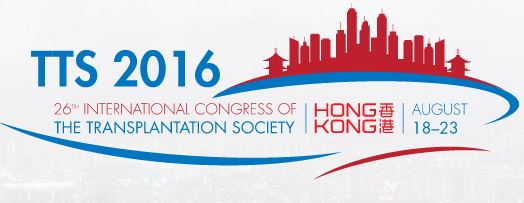In 2013, the Chinese government announced a phaseout of the use of organs from executed prisoners in transplants, a practice that had long been reviled by human rights and health activists. Yet since then, experts have concluded that the number of organ transplants in China still far exceeds the number of organs available from voluntary donations, raising suspicion that the practice has not yet been fully eradicated. In Hong Kong this week, the meeting of the International Congress of the Transplantation Society has faced criticism from doctors and health experts who do not believe China is ready to join the international transplant community. From Didi Kirsten Tatlow at the New York Times:
[..I]n an article published on Wednesday in the American Journal of Transplantation, a day before the 26th International Congress of the Transplantation Society was to open in Hong Kong, doctors and members of a nongovernmental medical organization criticized the decision to hold the meeting in China as premature.
“In the current context, it is not possible to verify the veracity of the announced changes and it thus remains premature to include China as an ethical partner in the international transplant community,” wrote the authors, who included Dr. Jacob Lavee, of the Sheba Medical Center in Israel, and Dr. Torsten Trey, the executive director of Doctors Against Forced Organ Harvesting, a nongovernmental group based in Washington.
“Until we have independent and objective evidence of a complete cessation of unethical organ procurement from prisoners, the medical community has a professional responsibility to maintain the academic embargo on Chinese transplant professionals,” they wrote. [Source]
From the abstract of the American Journal of Transplantation article:
Recent reports have discussed an implausible discrepancy of officially reported steady annual transplant numbers and a steep expansion of the transplant infrastructure in China. This paper expresses the viewpoint that, in the current context, it is not possible to verify the veracity of the announced changes and it thus remains premature to include China as an ethical partner in the international transplant community. Until we have independent and objective evidence of a complete cessation of unethical organ procurement from prisoners, the medical community has a professional responsibility to maintain the academic embargo on Chinese transplant professionals. [Source]
At the meeting, the Chinese government was criticized for not providing full and accurate statistics on the number of organ transplants. Elizabeth Cheung and Ting Yan report for the South China Morning Post:
Professor Jose Nunez, an advisor to the World Health Organisation, said China stopped reporting organ donation figures to the global health watchdog after 2010.
He asked the country to report data after that date.
“We are requesting the Chinese authorities to adopt transparency and open itself up to scrutiny,” Nunez said.
But he admitted that many countries – not only China – were not reporting data every year. [Source]
Official data in China says that demand for organs far exceeds supply from donations. China Radio International reports that last year 2,766 people donated organs, twice the number from the previous year, while 1.5 million patients awaited organ transplants in the country. However, officials have continued to deny that organs are still harvested from executed prisoners:
Experts slam rumors of organ harvesting in China as "ridiculous and absurd" https://t.co/UrNX16x442 pic.twitter.com/qu8XoJM3tg
— China Xinhua News (@XHNews) August 20, 2016








